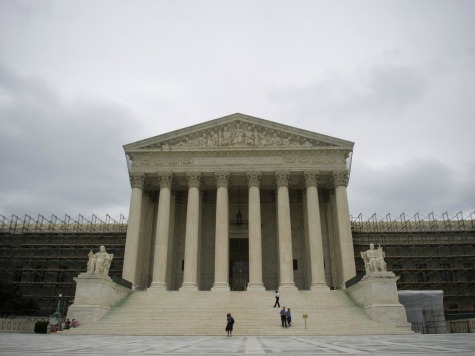
The Supreme Court handed down three decisions on Monday, two of which are noteworthy, and also granted review in one new case for its next Term, beginning in October.
The U.S. Department of Agriculture filed a lawsuit against Marvin and Laura Horne regarding their business, in which the Hornes produce and handle raisins. USDA imposed fines and sanctions against them after the Hornes refused to sell a percentage of their crop to the government at below-market price. The Hornes asserted as a defense that the Agriculture Department’s fines were an unconstitutional taking of their property without compensation in violation of the Fifth Amendment Takings Clause.
The Ninth Circuit federal appeals court denied this defense, saying that the Hornes must file their own separate lawsuit in the Court of Federal Claims in Washington, D.C., and therefore that other federal courts lacked jurisdiction to consider the defense. In Horne v. Dep’t of Agriculture, the Supreme Court held that federal courts do have jurisdiction to consider this Fifth Amendment claim raised as a defense against government actions. The case now goes back to the lower court.
Justice Clarence Thomas wrote for a unanimous Court, “In the case of an administrative enforcement proceeding, when a party raises a constitutional defense to an assessed fine, it would make little sense to require the party to pay the fine in one proceeding and then turn around and sue for recovery of that same money in another proceeding.”
In the second newsworthy case from today, the Ex Post Facto Clause of the Constitution forbids the government from prosecuting someone for a crime if what they did was not a crime at the time they committed it, and instead became criminal only after they did it. If the law is changed to make something that is a crime more severe, this provision also forbids the government from imposing the new, harsher punishments on someone who committed that crime before it was enhanced.
In Peugh v. U.S., the Supreme Court held in a 5-4 decision written by Justice Sonia Sotomayor that when U.S. Sentencing Guidelines are revised, it violates the Ex Post Facto Clause to consider that new range of factors for someone who committed the crime before the revision.
Thomas wrote the main dissent, explaining that revising the Guidelines do not alter the punishment for the crime. Federal judges still have discretion on what punishment to impose, and since the Guidelines are advisory, seeking only to persuade judges how much weight to give various factors, the Guidelines carry no automatic legal effect to determine the punishment.
Also today, against the Obama administration’s objections, the justices decided to hear arguments late this year in an arbitration case against Argentina. The Court also denied review today in a First Amendment challenge to a court injunction that restricted display of “gruesome” images in a church where children under age 12 were expected to see the pictures.
No word today on the blockbuster cases pending before the Court on affirmative action, voting rights, or gay marriage. The Court will hold another session this Thursday.
Breitbart News legal columnist Ken Klukowski is on faculty at Liberty University School of Law.

COMMENTS
Please let us know if you're having issues with commenting.